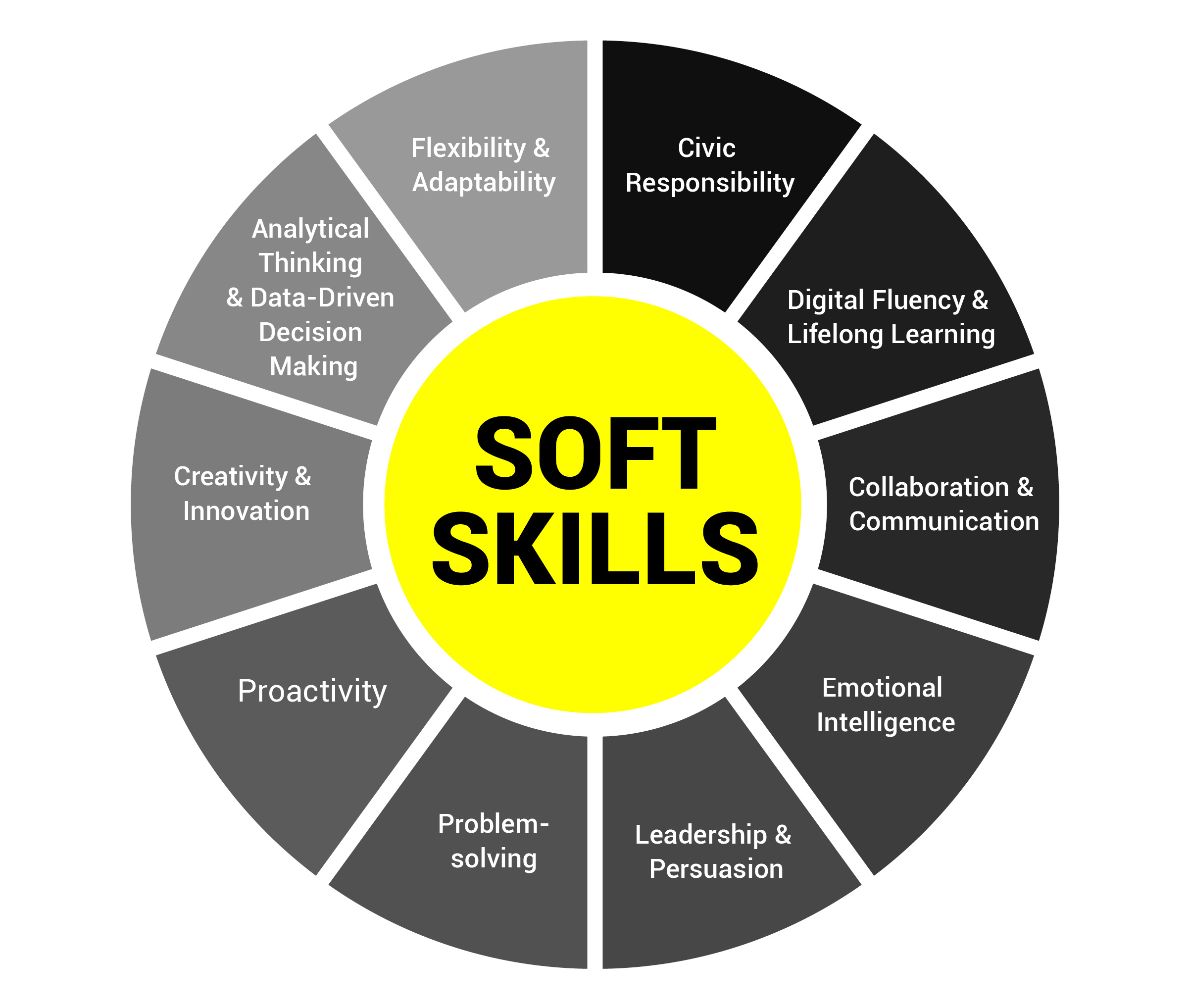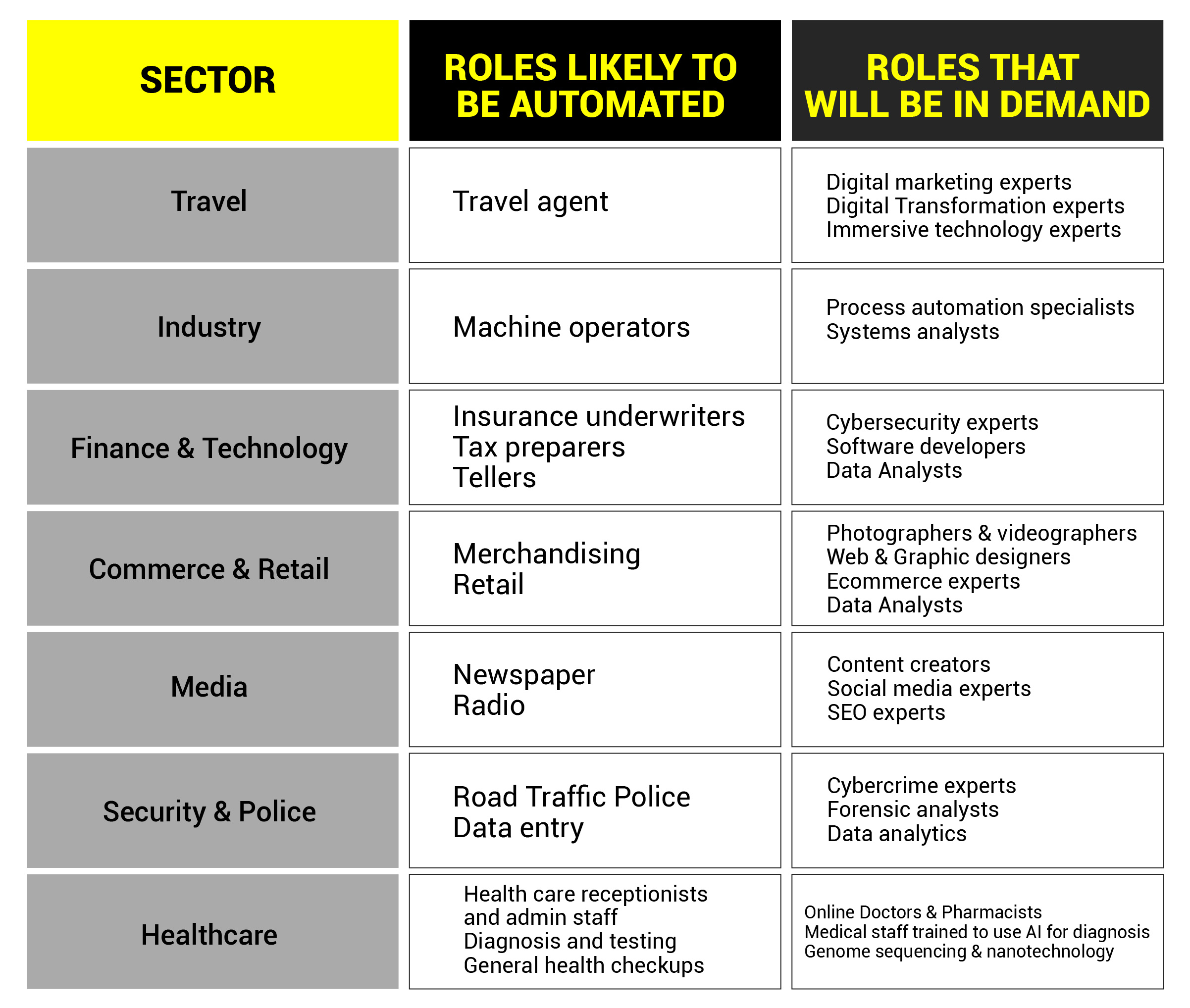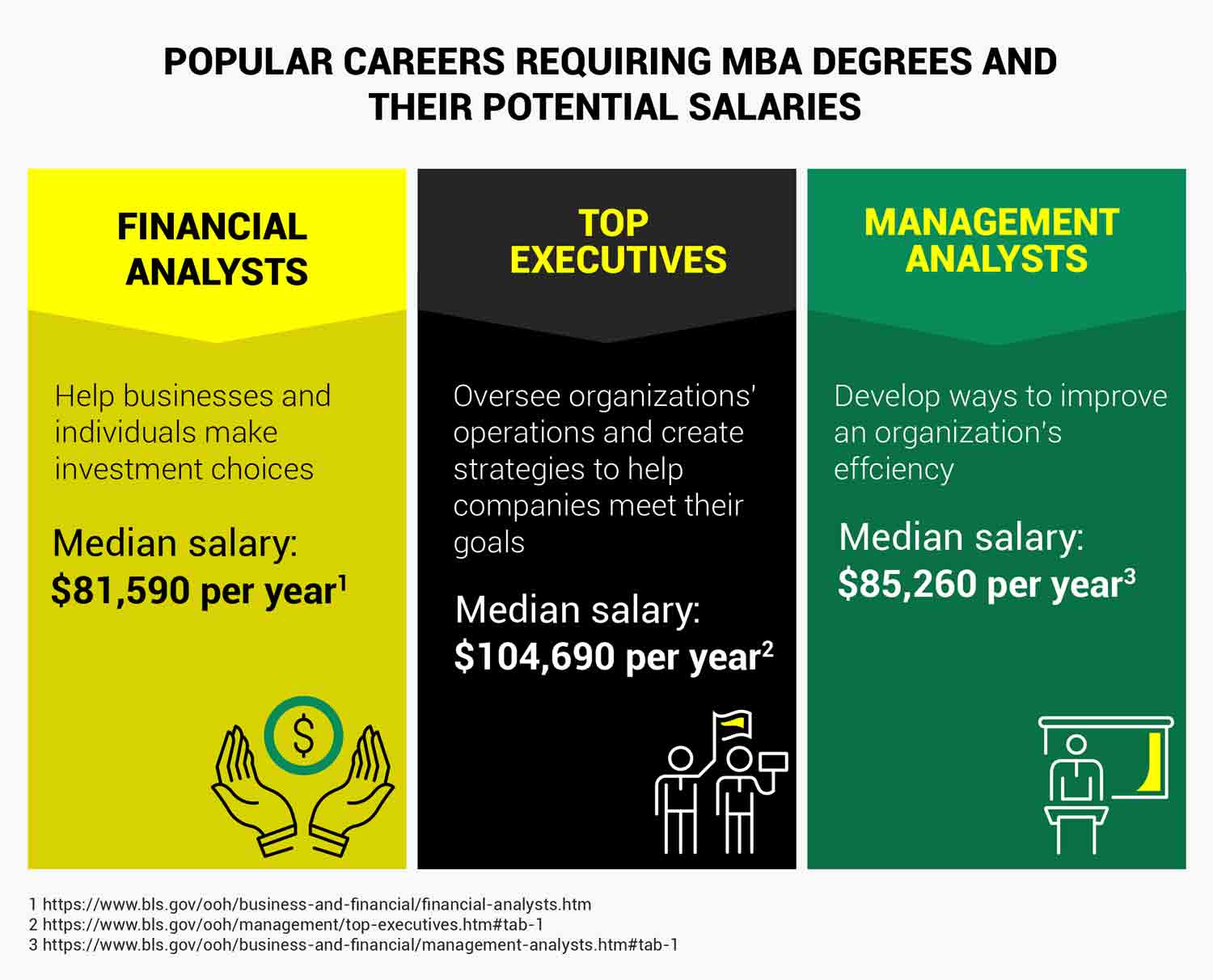We are in the midst of the digital economy, meaning that production and exchange are now almost entirely based on information technology. This revolution started at the end of the 90s and it has been rapidly changing the labor market and the skills required to succeed in any industry. Only two decades ago, technical competencies were the most sought-after skills in the job market. Now employers are increasingly aware of the importance of soft skills and learning ability required to keep up with innovation.
As the labor market evolves, education needs to evolve to help students and future workers acquire the right tools to navigate this complex and ever-changing landscape. A new approach is needed, moving away from traditional subjects and focusing on an accurate analysis of the jobs that will be in the highest demand in the coming decades. This way, as well as providing a qualification, courses will provide students with the right mix of technical, business, and soft skills to meet future job demands.
What kind of future job skills will breed success?
There’s no right answer. Every industry is different. But there is one common trend across all fields that can really make a difference: a mindset of continuous learning, often referred to as lifelong learning. Moreover, technical expertise may evolve and rapidly become obsolete, while your soft skills will help you in any future job or career.
Another important change that’s affecting the labor market is the shift in jobs requiring more generalists than specialists: it’s better to be open-minded and adaptable than extremely tech-savvy.
“The key skill of the future is, well, not quite a skill; it’s an approach, a philosophy, and way of thinking — and it’s critical you adopt it as soon as you’re able.” — Dr. Vikram Mansharamani, Lecturer at Harvard University
What are the top 10 skills employers look for in a job applicant?
They may not appear in the job description, but you can be sure every company would want to bring these skills and resources into their organization today.

1. Flexibility & Adaptability
The ability to quickly adapt to a new context, new needs and new circumstances. Just think of how flexible and dynamic realities are thriving during the Covid pandemic while old and static ones are facing economic crisis. These skills are also important on a personal level, since you may have to deal with remote work, shifts or flexible working hours. A college degree provides an excellent training ground as you find ways to stay organized in order to succeed.
2. Analytical Thinking & Data-Driven Decision Making (DDDM)
The ability to analyze the details of a situation without losing sight of the general context is an essential skill for better decision making. Not only that, but using evidence and data as a basis for your decisions ensures that your course of action is validated, and is applicable to all areas of science, technology and business. Yet, the quantity of data available to us in the digital era can be mind-blowing. The ability to use big data analytics to inform your choices without getting overwhelmed by the numbers is now an extremely valuable quality for individuals and companies alike.
3. Creativity & Innovation
Creativity is not just something for artists, writers or designers: it’s something every future worker needs to master. Together, the skills of creativity and innovation allow you to look to the future and develop solutions to the problems that have barely begun to take hold. You can develop these soft skills by always adopting a personal and unconventional approach to any situation. One of the best college degrees helping you strengthen your creativity is marketing, since it will stimulate you to produce new ideas, but it is equally applicable to automation, biotechnology and general business fields. In 2019, creativity topped the charts as the most in-demand soft skill sought by employers.
“Creativity is not just about art. It lies at the heart of innovation, thus it is not a superficial skill, but a necessity for human survival.” — Balder Onarheim, PhD, Associate Professor Technical University of Denmark
4. Proactivity
This means acting instead of reacting to changes or situations. It means providing answers (to clients or employers) even before being asked to. It also means foreseeing obstacles and problems in advance to be well prepared. E-commerce is a really good example of proactivity, especially since the Covid pandemic: retailers who have been able to anticipate and ride this trend are now more immune to economic crisis than traditional retailers.
5. Problem solving
If you are proactive, you’ll probably be good at finding creative solutions to new problems. This skill is directly linked to your performance, future-proof yourself. A college degree in business will help you develop this fundamental skill that’s essential in any kind of job and in your daily life too.
6. Leadership & Persuasion
Being authoritative and leading people to achieve a goal is an essential soft skill, and not only for future managers and directors. Everyone needs it to be an inspiration for the work team and take charge when needed. An example a of contemporary leader? An influencer! Have you ever thought of how good they are at conveying a message and persuading others? A college degree in business will help you develop your inner leadership to become a valuable member of your network. That’s an unmissable asset to fit in with future job demands.
“If you can't communicate and talk to other people and get across your ideas, you're giving up your potential.” — Warren Buffett
7. Emotional Intelligence
The ability to understand and manage your emotions and to recognize those of other people. Have you ever lost your patience with a colleague or failed to understand a different point of view? If so, it means you need to work on your emotional intelligence. In the labor market, IQ is no longer the most important asset: strengthen your EQ and self-control instead. Studying online and working with a diverse mix of cultures is a great way to develop EQ skills. It allows you to improve self-awareness, the ability to empathize with others, and your understanding of different viewpoints and cultures.
8. Collaboration & Communication
These skills are essential for both leadership and teamwork. Although remote work, smart work and freelancing are becoming more and more common, the ability to collaborate with others is essential. You’ll always have to closely work with your clients, bosses or colleagues, since team building is the key to success. An excellent communicator can effectively convey a message in a clear and unambiguous manner. In a digital economy, communication is one of the most important assets and you need to master all its forms (verbal, written, non-verbal) and its instruments (social media included). Digital media is undoubtedly the most important communication medium of the future.
9. Digital Fluency & Lifelong Learning
The only constant is change when it comes to technology and software. The only way to respond to this reality is by adopting a growth mindset, in which you are ready to learn and re-learn as you adapt to the new technological context of your role. The ability to pick up new skills and adapt to changes is essential for the workplace of tomorrow. Technology should no longer be thought of as the remit of a technology team, the effective use of technology is now a basic necessity for productivity across every role.
10. Civic Responsibility
Sustainability is no longer a niche. It is a core part of corporate social responsibility and a huge marketing opportunity. While you may think of civic responsibility as a company-level concept, on a personal level we all have a duty of care to the world around us. Ethical companies look for candidates who share their values and will make decisions within the context of sustainability and responsibility.
What are the trending industries?
We have identified seven trending industries that will see the biggest growth in the next decade. These are:
Immersive Technologies
Ecommerce & Supply Chain Management
Digital Transformation
That’s not to say that the growth in these industries is uniform across the world. Nigeria, for example, is set to continue to lead the way in Fintech development on the African continent in 2021. The Philippines is estimated to have the fastest-growing internet population in the world, with Indonesia a close second, paving the way for the expansion of e-commerce in these countries.
How does this affect the job market of tomorrow?
There is no doubt that the integration of advanced technology and AI into every field will have an impact on the job market. Repetitive tasks and those depending on high-level calculations will be the first to be automated. According to a McKinsey study, “75 million to 375 million people may need to switch occupational categories and learn new skills” by 2030. That’s a huge number of people who may soon find themselves needing to learn skills to change their career path in the years ahead.
But with these changes come new opportunities: filling the gaps that require the human touch. For example, while the role of performing routine tasks is delegated to a machine, opportunity arises for the worker who can program the machine, or troubleshoot malfunctions.

The digital transformation of each sector takes a slightly different form, but the underlying trends are clear. People move from repetitive jobs to non-repetitive jobs; from problem-solving to problem-finding; from doing what they’re told, to using their own initiative and creativity.
How can you future-proof your career?
The best way to future-proof your career is to learn the new skills that will be in high demand in the next five years. By carefully selecting your professional development, you can prepare for the trends we can already see happening across every industry today, including:
Integration of technology in every industry
Growth of AI applications
E-commerce replacing physical retail
Digital marketing and social media
Remote/smart/freelance work
Future job demands privilege soft skills over technical knowledge
Equipping yourself with the skills and qualifications that recruiters will be looking for as these trends continue is the only way to future-proof your career: ensuring your value will always be recognized, even as the industry you work in changes.
Is higher education the answer?
Given the constant changes in society and business, as well as the growing importance of soft skills, you might wonder if spending time and money on degrees and qualifications is a good idea.
The truth is, it’s not a case of focusing on one or the other. At Nexford, we believe an MBA is more than three letters. The real key to success is bringing real world skills and qualifications together so you can hit the ground running and get ahead of other graduates.
1. A modern degree will help you develop the soft skills you need in your professional career
It allows you to practice continuous learning, and provides proof that you are the kind of person who will keep developing throughout your career. That’s exactly what you need to stay relevant in the labor market, and will set your application apart from the others;
It will prepare you for more qualified and high-paying jobs. A company expects a better professional performance from an MBA graduate, and this is something they are prepared to pay for. According to a study by the National Association of Colleges and Employers, MBA grads currently enter the job market with a starting salary 30% higher than those with a Bachelor’s degree in Business;

2. Online learning has even more advantages
An online degree makes you cultivate flexibility and proactivity that you can use in your career, in addition to providing great training in everything digital. These soft skills are timeless and future proof, despite the change in technology and world development that are to follow;
By choosing an online course, your learning doesn’t have to interfere with your current job. With uncertainty in the job market, most people find learning online is the best option for professional development. You get to make sure the bills keep getting paid while you acquire more skills and knowledge, so you can future-proof your position in your current company or improve your prospects in your future job!
3. There are many different routes to learn and develop
If an MBA is not for you, ongoing professional development and short courses can also teach these essential soft skills, as well as providing proof of your learning for your future employer.
With Nexford, learners can access an online library of over 60 million resources from Bloomberg, Cambridge University Press, Oxford University Press, IEEE Press, the MIT Press and more.
LinkedIn Learning is another favorite of ours, with 16,000+ expert-led courses. You can tailor your learning by choosing relevant courses based on your experience, LinkedIn profile, and goals. Plus, test what you’ve learned with assessments to earn certificates.
As the Chinese proverb goes, the best time to plant a tree is 20 years ago; the second-best time to plant a tree is now. And so it is with the qualifications that will protect your career into the future: once you recognize the skills that will future-proof your career, the time to start developing them is now.
Ready to take the next step and discover the skills needed to transform your future career: Download our brochure.
Subscribe to our newsletter
Don't miss out on our latest updates.
Unlock Your Potential: Explore Our Programs
Invest in yourself and your future. Discover our range of degrees, courses, and certificates to achieve your goal







